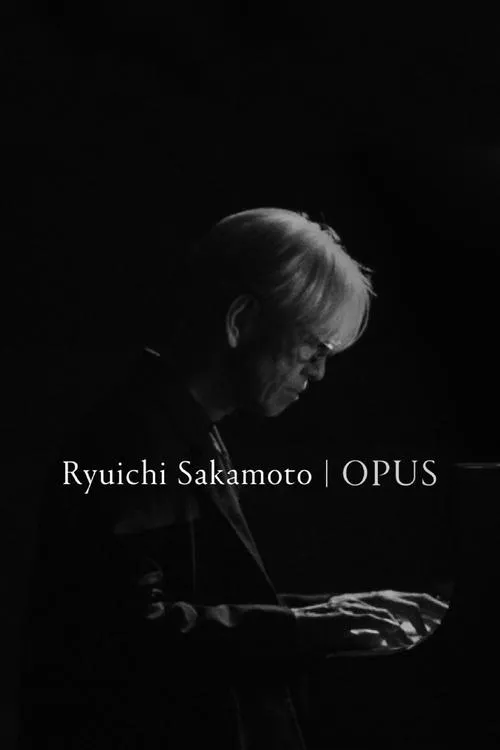Ryuichi Sakamoto: Opus

Plot
In a poignant tribute to a man, a musician, and a legacy, Ryuichi Sakamoto: Opus, the final concert film of the renowned Japanese composer and pianist, is a masterclass in the power of art to transcend time and mortality. Conceived as a reflection of Sakamoto's storied 40-year career, the film distills the essence of his life's work into 20 seminal songs, performed in breathtaking solo piano arrangements that showcase the full range of his creative genius. Shot during a series of intimate and emotional performances just months before his untimely passing in 2023, Opus is a deeply personal work that invites the viewer to bear witness to the artist's innermost thoughts and emotions. With each successive piece, Sakamoto's hands dance across the keyboard, evoking the memories, landscapes, and emotions that have informed his remarkable career. From the opening strains of "Field," a gentle, shimmering melody that conjures the Japanese countryside, we are drawn into the introspective world of Sakamoto's creative process. Here, we find the composer in a state of quiet contemplation, his fingers weaving a delicate tapestry of sound that is both simple and profound. As the piece unfolds, we begin to grasp the vast scope of his musical influences – from the traditional Japanese folk melodies of his childhood to the minimalist experiments of Western classical music. The first half of the film is marked by a string of poignant and deeply personal pieces, each one evoking a specific time and place in Sakamoto's life. There is "The Seed," a hypnotic and repetitive melody that recalls the composer's early days as a member of the Yellow Magic Orchestra, the influential electronic music collective that made him a household name in the 1970s and '80s. "Charm," another early work, showcases Sakamoto's emerging sensibility as a composer, its spare, economical textures and subtle dynamic shifts a harbinger of the musical innovations that would characterize his solo career. If the first half of the film is marked by nostalgia and reminiscence, the second half is characterized by a sense of resolution and renewal. Pieces like "Tales from the Bamboo Book" and "The Dance of the Birds" – both of which draw on traditional Japanese musical idioms – demonstrate Sakamoto's remarkable capacity for reinvention and his ability to infuse familiar forms with a fresh, modernist spirit. Here, we see the composer at his most visionary, conjuring sounds and images that are both deeply personal and universally relatable. One of the most striking aspects of Opus is its use of cinematic space. Shot in a simple, unobtrusive style, the film eschews fancy camera movements and ornate visual effects in favor of a direct, unmediated relationship between the viewer and the artist. As Sakamoto performs, we are invited to step into the world of his creation, to inhabit the quiet, introspective space of the piano and the artist's innermost thoughts. It is a privilege, and a responsibility, that the composer himself seems to acknowledge in the film's final moments, when he pauses to reflect on the fragility and beauty of life, as embodied in the phrase "ars longa, vita brevis." In these closing words, we find a powerful tribute to the enduring power of art, and the abiding legacy of Ryuichi Sakamoto, a true master of his craft.
Reviews
Recommendations




